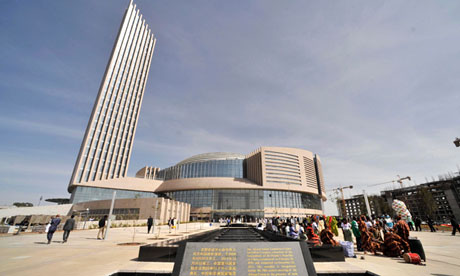 Durban, SOUTH AFRICA (IOL) - Foreign shopkeepers in Cato Crest are in the grip of fear after an Ethiopian trader was killed last week and another survived a shooting at the weekend.
Durban, SOUTH AFRICA (IOL) - Foreign shopkeepers in Cato Crest are in the grip of fear after an Ethiopian trader was killed last week and another survived a shooting at the weekend.The brother of a 32-year-old Ethiopian who died after he was shot twice blamed locals for doing nothing to help Dessta Bejego when he was attacked.
Bejego, originally from Hossana village in Ethopia, was murdered outside his brother, Helana Weldo’s, tuckshop on Thursday morning.
He was shot through the jaw and chest.
Weldo, 33, who also has tuck-shops at Amatikwe in Inanda, said yesterday: “My brother was killed by three boys in full view of the people in broad daylight.
“What amazes us is that his money - R2 270 in cash - was not taken. Only the bag containing (cellphone) airtime and cigarettes was stolen.”
He said his brother’s body had been flown to Ethiopia and he was expected to be buried on Tuesday.
“The Ethiopian community living in Durban contributed to the expenses,” Weldo said.
The killing took place in Ward 101 about 50m from the Cato Crest community hall.
On Saturday, an Ethiopian shopkeeper was attacked at his tuckshop in the same area. The door to the shipping container was locked and his three attackers shouted at him to open up.
The shopkeeper, whose name could not be established on Sunday, survived by hiding under a counter when his three attackers opened fire on the container, police said.
Police have confirmed both incidents. The suspects are known in the area.
Police are following several leads and hope to make an arrest in the coming days.
Constable Bongani Mokoena, of Cato Manor police station, brushed off claims of xenophobia.
“Foreigners doing business in the area have become soft targets for criminals,” he said.
“The community is scared to identify them to police. But we can say arrests would be made before the end of the week.”
He said the same gang was believed to have been behind both the attacks.
The chairman of the Ethiopian Community Association in South Africa, Pamiru Woubet, who is based in Gauteng, said yesterday that Ethiopians enjoyed good relations with locals.
“We cannot say in general that this is a xenophobic attack. Our view is that criminals see us as soft targets,” he said.
“We know that there is a high level of unemployment, which drives people to do crime.
“Maybe if the government can address these issues, there would be less crime.”
Somali Ismail Mohamed, 30, who rents a shop in the area where the attacks took place, spoke of his fear after the shootings.
“I am scared it could happen to us as well,” he said.
“We get along very well with customers, but also have frosty relations with local shop owners, who do not approve of us doing business here.
“They held countless secret meetings last year, discussing ways of getting rid of us,” said Mohamed, who is from Kisimayo village in Somalia.
He appealed to the police to protect foreign business owners from criminals.
“We need help. This is our daily bread,” he said.


